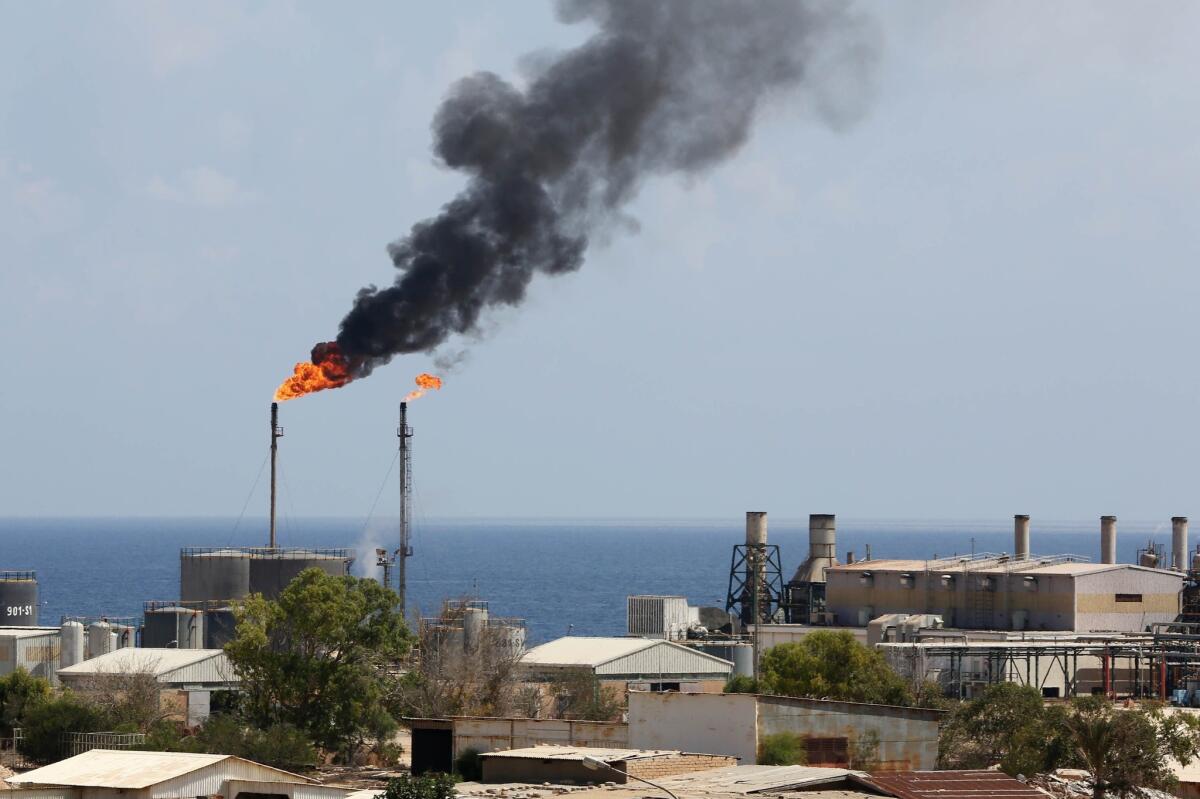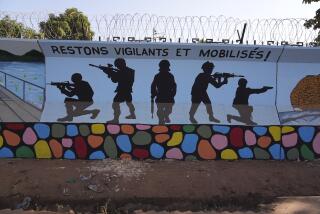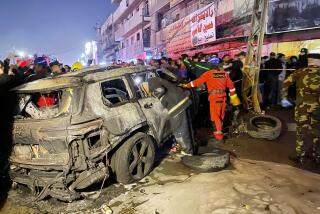Rival militias battle in Benghazi in latest sign of chaos in Libya

Rival armed groups battled Friday with warplanes and antiaircraft guns in the eastern city of Benghazi in the latest outbreak of militia-linked chaos in energy-rich Libya.
Fighters from a faction led by a retired general used aircraft bearing military insignia to bomb a barracks on the outskirts of the city occupied by an Islamist group, witnesses said. The defenders responded with antiaircraft fire.
The state news agency LANA said there had been fatalities in the fighting, but did not say how many.
Prime Minister Abdullah Thani went on nationwide television and declared that security forces would restore order. But the North African nation’s military is outgunned by rogue armed groups.
More than 2½ years after the death of dictator Moammar Kadafi, Libya is awash with weaponry, much of which has fallen into the hands of independent militias. Many of the groups are associated with particular tribes or parts of the country.
The weak central government has been unable to rein them in, although it has partly co-opted some armed factions by putting them on the government payroll. Libya’s once-lucrative oil and gas industry has been ravaged by the slide into lawlessness, with militias seizing control of oil fields, ports and other installations.
Friday’s fighting raged in several parts of Benghazi and nearby areas, according to residents. Benghazi, the country’s second-largest city, was the cradle of the anti-Kadafi uprising. It was the site of an attack on U.S. facilities in September 2012 that killed the Ambassador J. Christopher Stevens and three other Americans.
The barracks bombardment was carried out by a group led by Khalifa Haftar, a former general who was a rebel commander in the uprising against Kadafi. Local news reports said his group -- which calls itself the National Army and whose ranks include a number of deserters from the regular armed forces -- claimed through a spokesman that it was moving against “terrorists” operating in Benghazi.
The city has been racked in recent months by violence, including assassinations, abductions and unrelenting attacks against security forces. Two soldiers were killed Thursday.
The United States and other Western governments are moving to help the Libyan government train a professional military but there has been little headway, and the armed forces have been ineffectual in dealing with crises.
In March, Libya’s navy was unable to prevent an illicit oil tanker from embarking from an eastern port with a cargo of crude oil that rebels had seized to sell on the black market. U.S. Navy SEALS intercepted the vessel and returned it to the Libyan government.
The tumult has hit home in the capital as well. The Algerian government said Friday it was temporarily closing its embassy in Tripoli, citing security conditions. Diplomats have repeatedly been targeted for abduction.
The Jordanian ambassador to Libya was freed this week by an armed group after being snatched by gunmen and held for nearly a month. The Amman government met a demand by the group to hand over to Libyan authorities a prisoner who was serving time for a terror plot in Jordan.
Juma is a special correspondent. Times staff writer King reported from Cairo.
More to Read
Start your day right
Sign up for Essential California for news, features and recommendations from the L.A. Times and beyond in your inbox six days a week.
You may occasionally receive promotional content from the Los Angeles Times.






